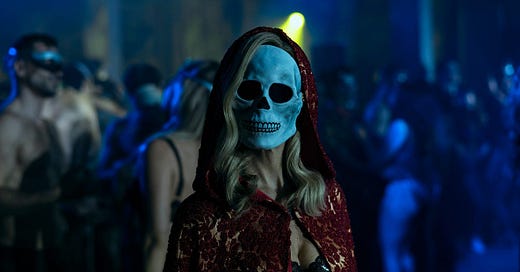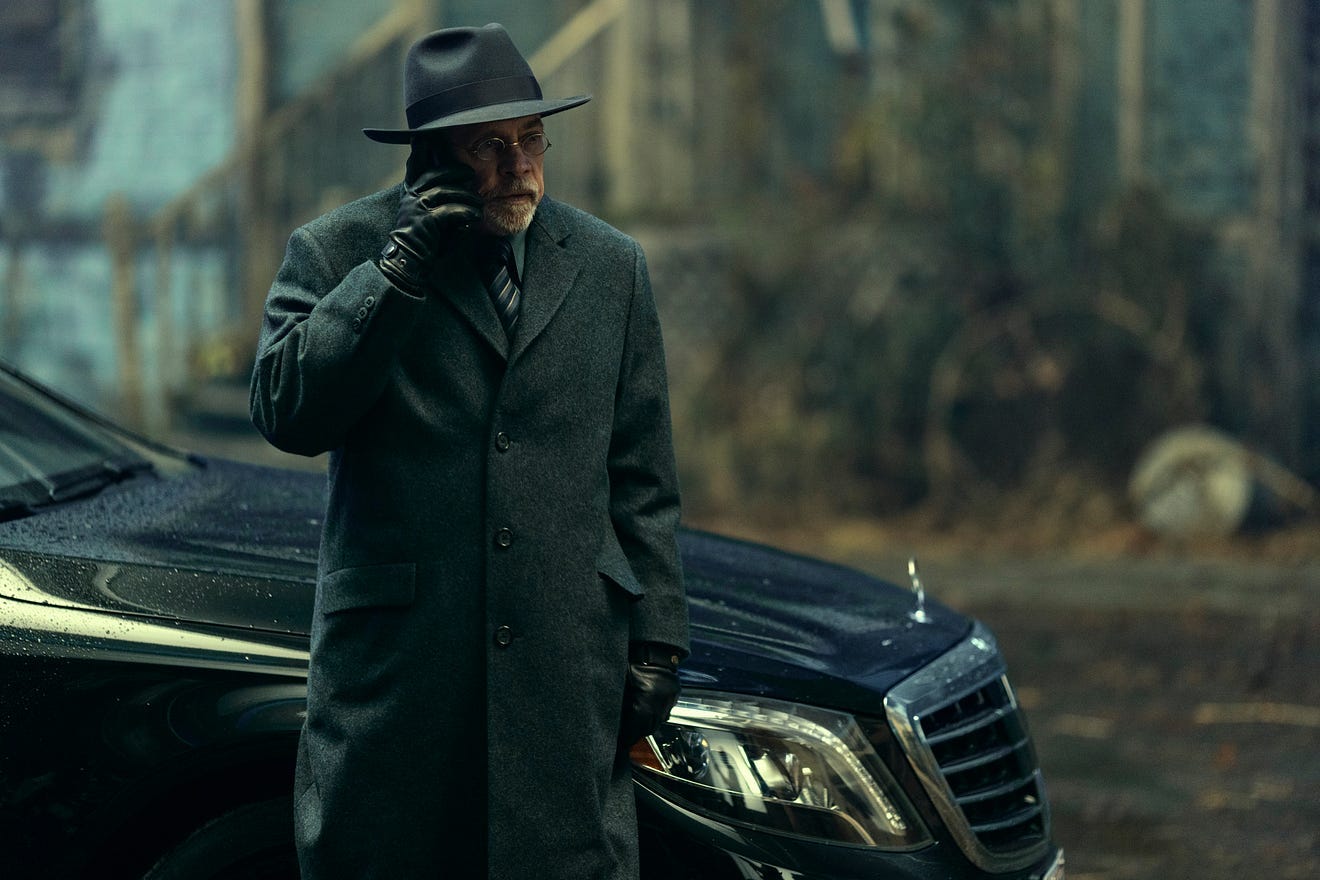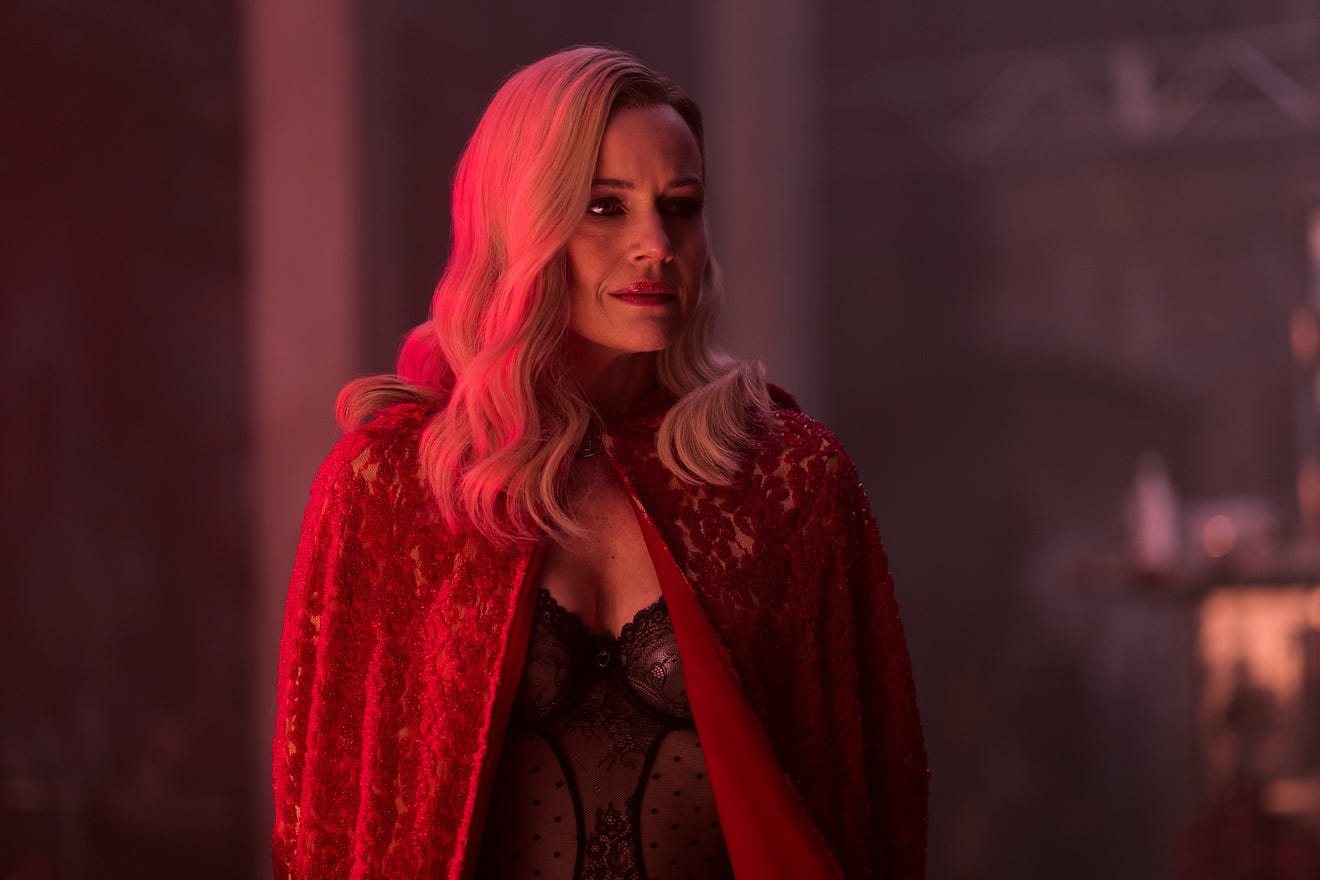Review: 'The Fall of the House of Usher'
Revisiting Mike Flanagan's dark and beautiful exploration of death, betrayal, and capitalism
Edgar Allan Poe, a towering figure in gothic horror, found new relevance in Mike Flanagan’s 2023 Netflix miniseries The Fall of the House of Usher — a banquet of gothic horror that stands out sharply against the glut of lazy splatter-fests and jumpscare-driven gruel we’re usually fed.
With his new offering, Flanagan, known for previous masterpieces like The Haunting of Hill House and Midnight Mass, serves up a contemporary horror series deeply respectful of the classic Poe tales.
Roderick Usher (played by Bruce Greenwood) — head of the powerful Usher dynasty and a pharmaceutical empire built on pain and profit — is a haunted man. Having just attended the funerals of his six adult children, each of whom died in bizarre and grotesque ways, one after the other, he is ready to say farewell.
To his children.
To this life.
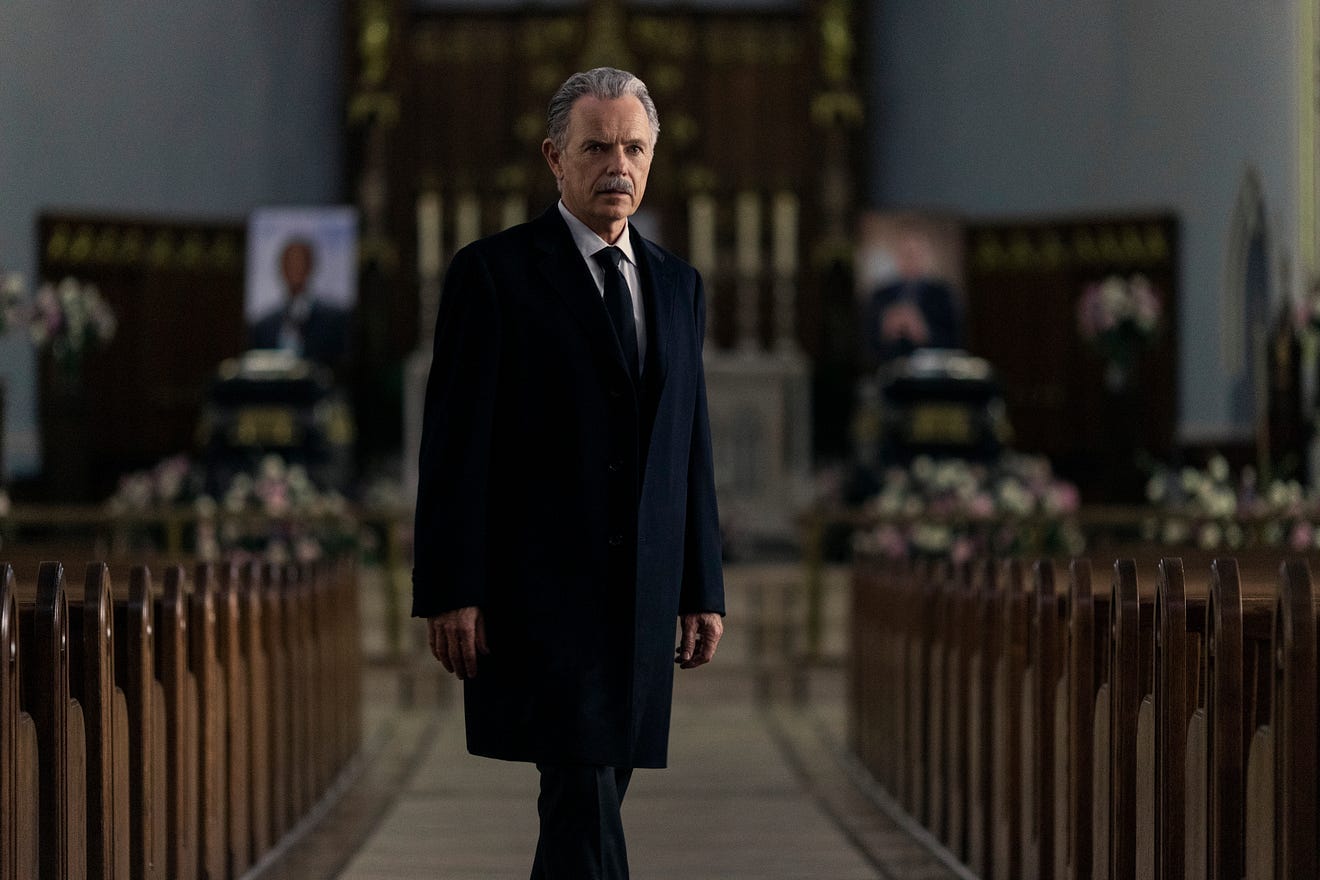
In his crumbling pharmaceutical empire, marred by corruption and conspiracy, he sits alone, consumed by the ghosts of past sins.
Immediately following the funeral, Roderick feels compelled to reveal the truth about his dark secrets, especially as he believes his own past is catching up to him. Enter District Attorney Auguste Dupin (played by Carl Lumbly). Dupin has been building a case against the cynical and greedy Usher family and their shady pharmaceutical company for years and sees this as an opportunity to expose them for all their misdeeds.
The Fall of the House of Usher is split into eight episodes that unfold like an unraveling confession. Through flashbacks and time jumps, we witness the true fate of the unsavory and greedy Usher children, as deeper secrets gradually come to light.
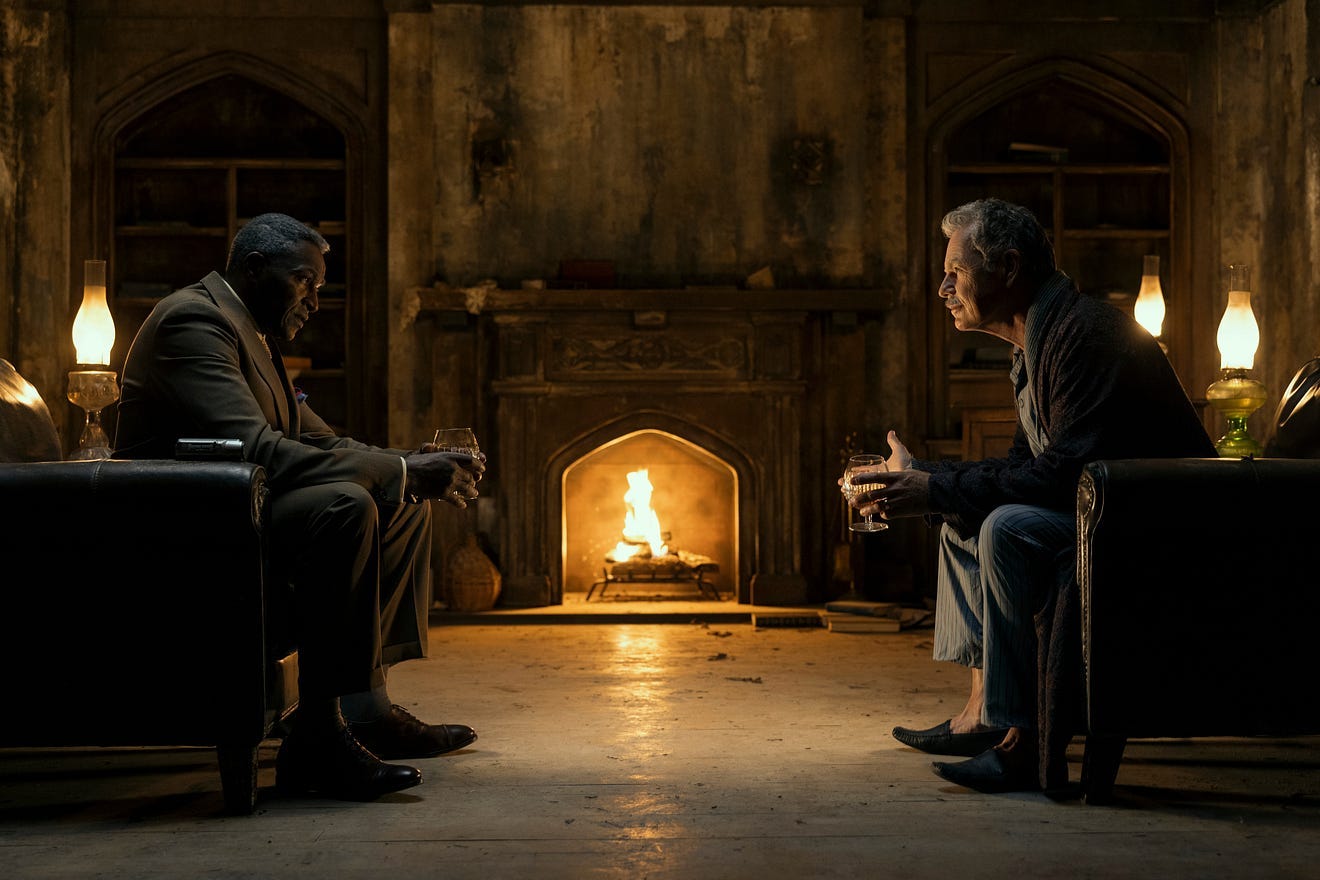
In conversations between Roderick and Dupin, we’re also treated to flashbacks of Roderick’s early years in the cutthroat pharmaceutical industry (here portrayed by Zach Gilford) as well as his encounter with a younger Dupin, masterfully played by Malcolm Goodwin.
The Fall of the House of Usher is structured around this pivotal conversation between Roderick and Dupin, where Roderick spills all. As the ghosts from his past swarm around him, he realizes his time is running out. The desperate family patriarch is haunted by a face from his past, the enigmatic woman Verna, portrayed by the fantastic Carla Gugino, who seems to have played a central role in the family’s rise and fall.
Director Mike Flanagan excels with this series, using his ensemble of cast to terrific effect. This continuity works exceptionally well; the chemistry between them is palpable, and each actor shines through both dialogue and powerful monologues that inspire both tears and chills.
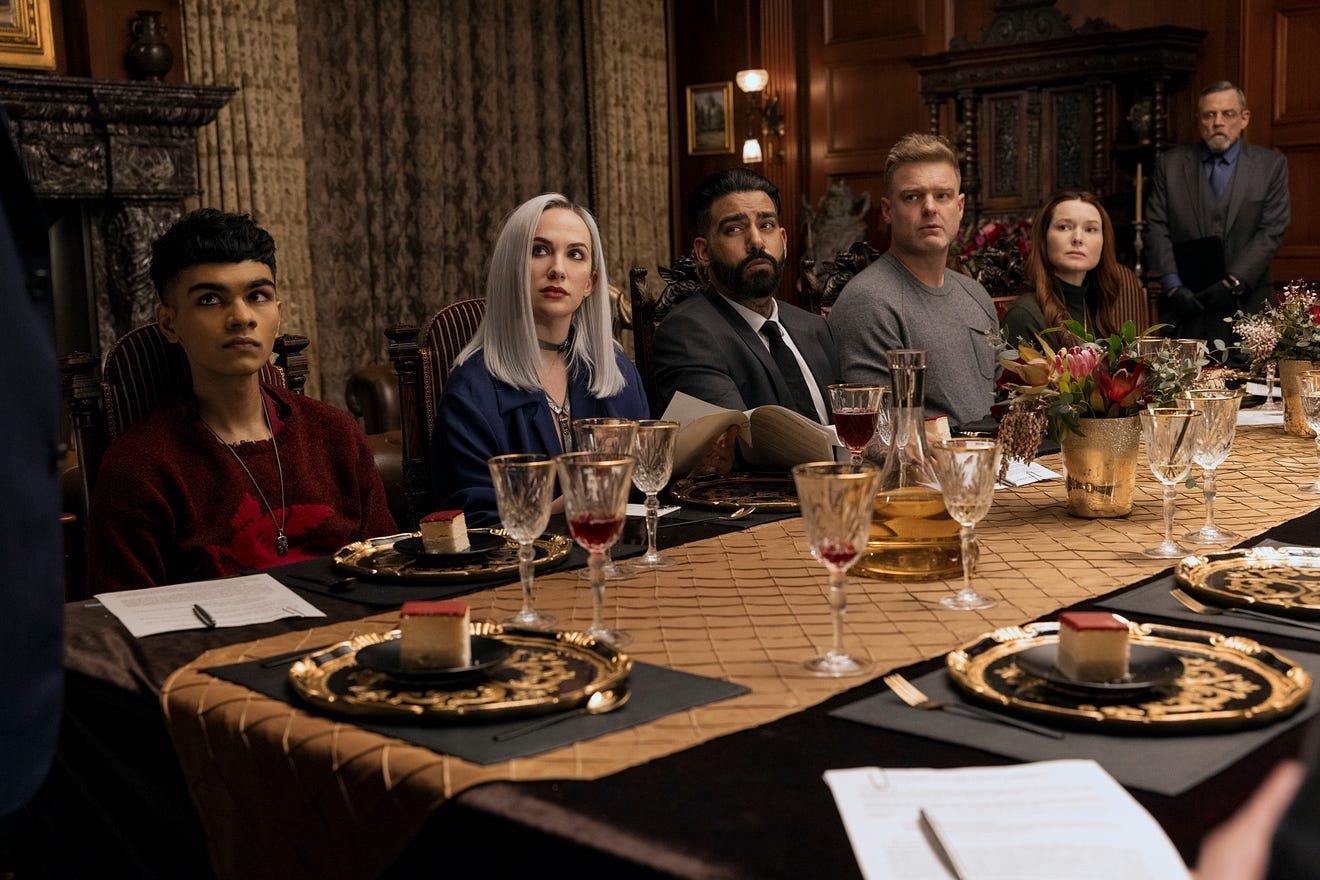
At the same time, the series allows the Usher children to work as archetypes embodying human flaws: greed, hedonism, and cynicism — all at the expense of others, destroying lives as they are unknowingly marched towards their horrible doom.
While such roles could easily have turned superficial and caricature in less capable hands, Flanagan’s direction brings out sharp, layered performances from his regular ensemble, who balance satire with real emotional weight.
A newcomer to the “Flanaverse” is none other than Mark Hamill. Yes, you read that right, Luke Skywalker himself joins the cast, and for a die-hard Star Wars fan like me, it’s incredibly fun to see one of my cinematic heroes play the diabolical and malevolent business attorney for the Usher family, Arthur Pym. And to see Hamill in a black suit, complete with black leather gloves and small, round glasses — a kind of gloomy mix of a hitman, a demon, and Saul Goodman — priceless!
We also meet Roderick’s ruthless sister Madeleine, portrayed by Mary McDonnell. Both actors are excellent in their roles, playing off each other as their characters inch toward inevitable doom. Where Roderick is consumed by guilt and resignation, Madeleine is fueled by spite, malice, and a relentless will to defy her fate.
And this doom? Verna. Carla Gugino gives a chilling performance as this enigmatic entity — a character whose significance and anagrammatic name won’t be lost on avid Poe readers.
Other returning Flanagan regulars include Kate Siegel as Camille L’Espanaye, Henry Thomas as Frederick Usher, Katie Parker as Annabel Lee, Robert Longstreet as William Longfellow, Samantha Sloyan as Tamerlane Usher, Rahul Kohli as Napoleon Usher, Annabeth Gish as Eliza Usher, and Michael Trucco as Rufus Griswold.
The Fall of the House of Usher is among Mike Flanagan’s best, taking in Poe’s tales and adapting them for a modern audience with heartbreaking stories. This is some of Mike Flanagan’s best writing to date, with each main character given moments to shine, often through the monologues Flanagan has become so known for.
For instance, Roderick shares some trenchant observations that feel like a critique of our consumerist society, twisting the familiar idiom about “when life gives you lemons” into something darker and more unsettling in a capitalist world rife with tabloid headlines and clickbait.
The Fall of the House of Usher is masterfully stitched together as a dark tapestry of Edgar Allan Poe’s iconic works, including “The Masque of the Red Death,” “The Raven,” “The Black Cat,” “The Pit and the Pendulum” and others.
Those familiar with Poe’s stories will be able to predict the fates and tragedies of each of these characters — especially since many bear the same names as figures in the original works, such as Roderick, Lenore, Pym, Prospero, L’Espanaye, and LaFourcade — often handed out with accompanied monologues—each one more bizarre and gory than the last.
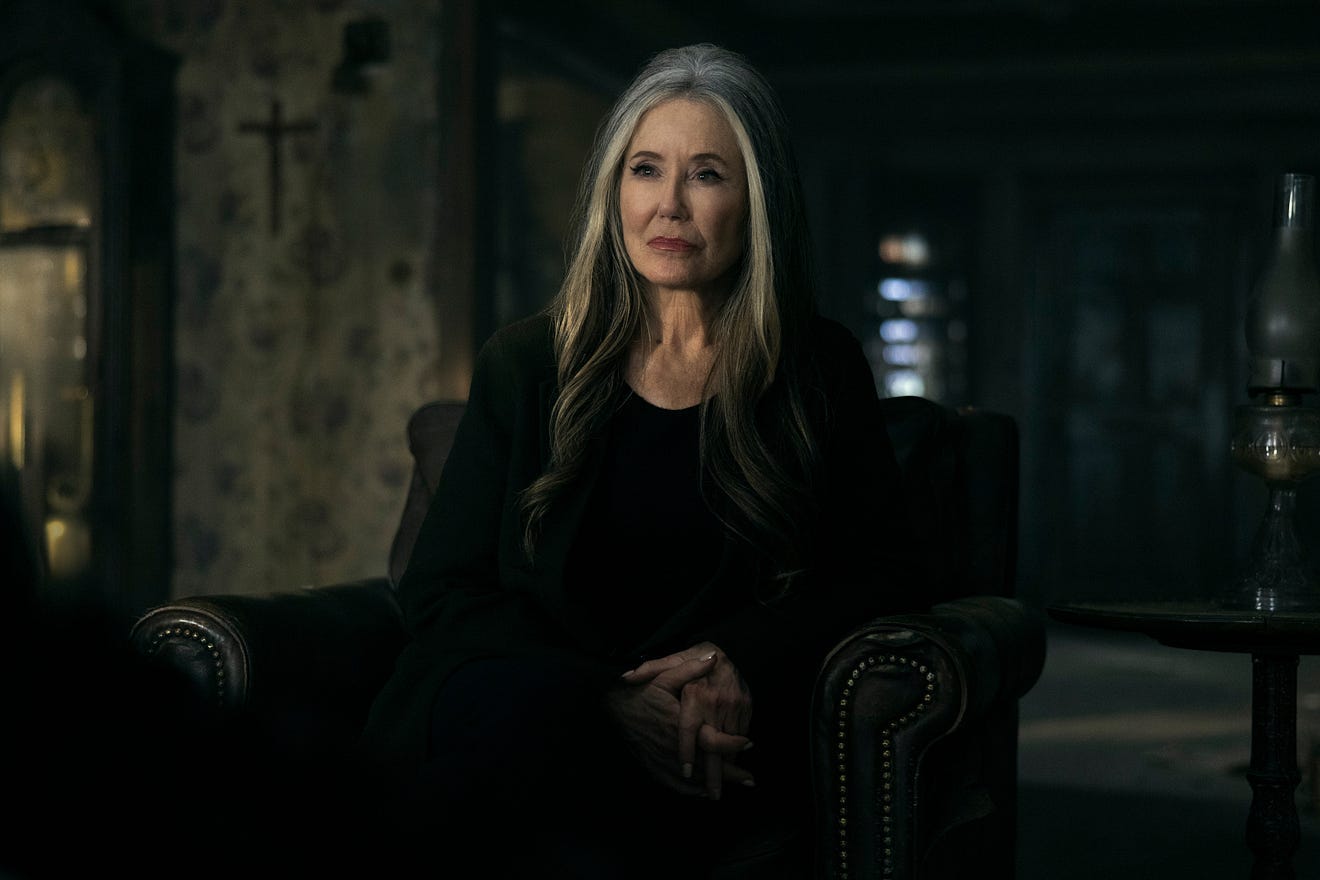
It’s like a Poe “greatest hits” collection, where each episode opens the door to a labyrinth filled with dark souls and grim outcomes. And as a lover of English poetry, it’s a genuine delight to hear how Flanagan has woven Poe’s poetic language, often verbatim, directly into the script.
The Fall of the House of Usher was — and still is — one of the strongest horror series I’ve seen in years, something Poe himself might have applauded. The series alternates between the unsubtle and the poetic, often delivering a blow that hits both emotionally and viscerally.
Mike Flanagan himself said in a podcast that if his The Haunting of Hill House was an opera, and Midnight Mass was a hymn, The Fall of the House of Usher is heavy metal.
It seamlessly transitions from drama and mild chills to some of the most grotesque scenes I’ve ever witnessed in the genre. Let’s just say, I might hesitate the next time I step into the shower!
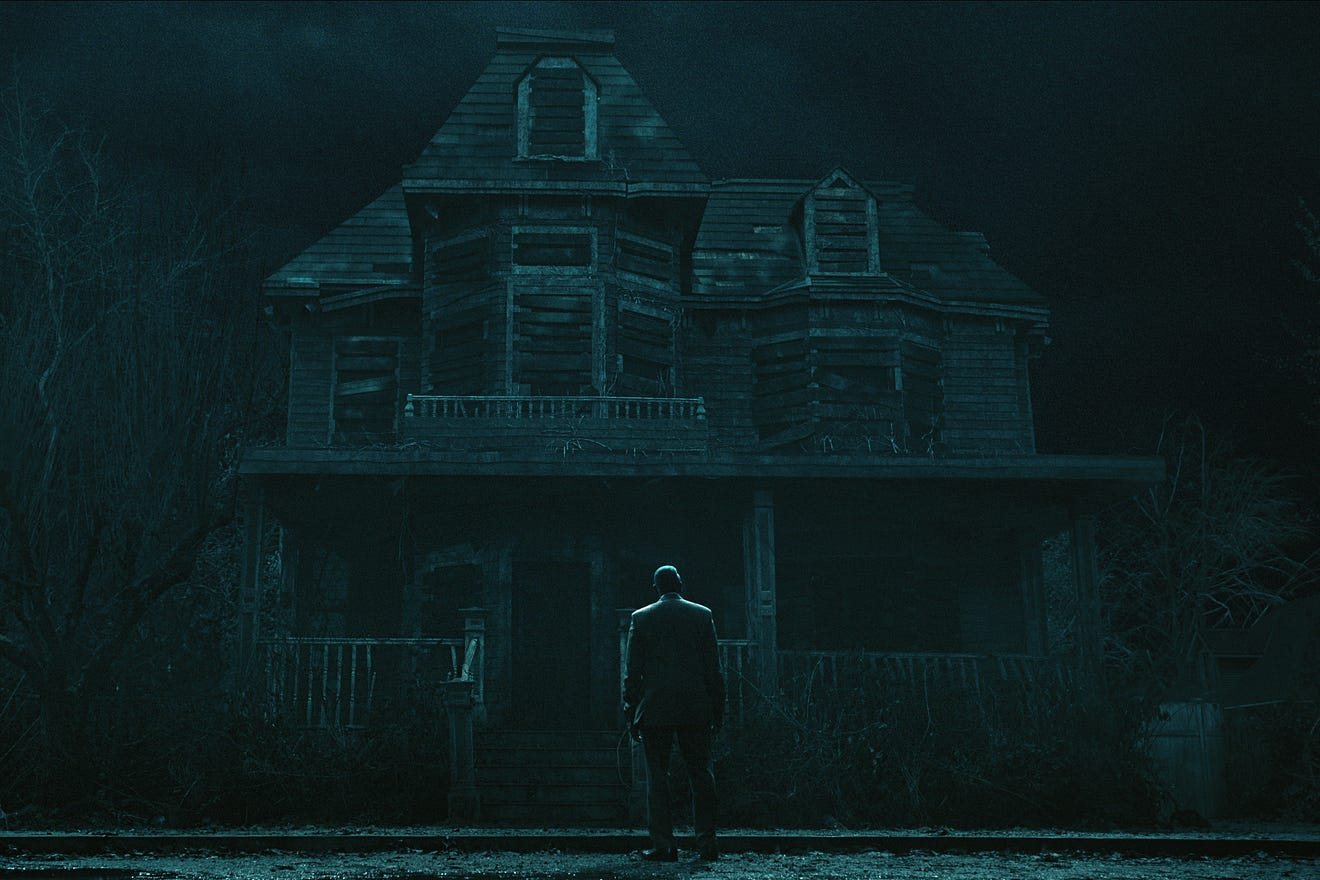
Drawing on Poe’s words, “All that we see or seem is but a dream within a dream,” this series lingers like a half-remembered nightmare. It’s unsettling in all the right ways, and the final episode leaves me an impression that always stays with me after every rewatch.
And if someone lightly taps on your window in the middle of the night soon, it might be best to simply draw the curtains for safety’s sake.
It’s probably just the wind…
“Prophet!” said I, “thing of evil! Prophet still, if bird or devil!
By that Heaven that bends above us — by that God we both adore.
Tell this soul with sorrow laden if, within the distant Aidenn,
It shall clasp a sainted maiden whom the angels name Lenore.
Clasp a rare and radiant maiden whom the angels name Lenore.”
Quoth the Raven “Nevermore”.
-From “The Raven” by Edgar Allan Poe

